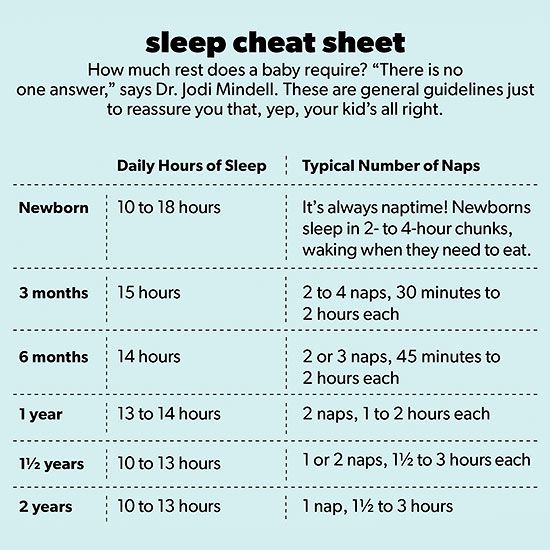Ready for Restful Nights? Your Sleep Training Guide for a 6-Month-Old
Hey there, tired parents! Are you dreaming of a full night’s sleep? Well, buckle up because we’re about to embark on an exciting journey towards peaceful nights with your little bundle of joy. Sleep training might feel daunting, but with our guide tailored for your 6-month-old, you can look forward to a future where everyone in the household wakes up refreshed and happy. Let’s dive into the world of sleep training without further ado!
Understanding Your 6-Month-Old’s Sleep Needs
First things first, each baby is unique, but by 6 months, many are capable of sleeping through the night. On average, your half-year-old will need about 14 hours of sleep in a 24-hour period, including naps. Recognizing your little one’s sleep cues and establishing a predictable bedtime routine are crucial initial steps in sleep training. By laying a solid foundation, you prepare your baby (and yourself) for success.
Creating a Cozy Sleep Environment
The setting is everything for good sleep hygiene. Make sure your baby’s sleep area is quiet, cool, and comfortable. A dark room with some white noise can do wonders for promoting uninterrupted sleep. Plus, a consistent place to rest their head can signal to your baby that it’s time for night-night.
The Bedtime Routine: Your Sleepytime Secret Weapon!
A bedtime routine is like the opening credits to dreamland. Consistent actions, like a warm bath, cuddly storytime, or a gentle lullaby, can signal to your 6-month-old that the sandman is on his way. The key is repetition and calm—creating a series of steps that your baby will associate with going to sleep.
Choosing Your Sleep Training Method
Think of sleep training methods as different paths to the same destination—restful sleep. Whether you choose gentle techniques like fading or no-tears approaches, or more traditional methods such as controlled crying (with doctor approval, of course!), the goal is the same: teaching your baby the valuable skill of self-soothing. Consider your family’s needs and your baby’s temperament when selecting your approach.
1. The Fading Sleep Method
This gentle method involves gradually reducing your presence in your baby’s room at bedtime. Start by sitting near their crib and slowly move your chair further away each night. Eventually, you’ll be able to leave the room entirely, and your baby will have learned to fall asleep on their own. Patience is key with this method, but many parents find the slower transition to be rewarding.
2. The Pick-Up, Put-Down Method
A bit more hands-on, this method requires you to comfort your baby with a cuddle if they cry, but to always put them back down before they fall asleep. It’s a delicate balance between offering comfort and encouraging independence, but with consistency, your baby will start to understand that they can fall asleep without being in your arms.
3. The Check-and-Console Method
Also known as Ferberizing, this method involves putting your little one to bed awake and then leaving the room, returning at set intervals to briefly comfort them without picking them up. Gradually extending the time between checks can help your baby learn to self-soothe without feeling abandoned, leading to longer stretches of sleep for everyone involved.
Remember, parents, sleep training isn’t a sprint; it’s a marathon. It’s all about consistency, love, and patience. As you and your baby work through these sleep solutions together, the night-time awakenings will soon turn into blissful zzz’s. When that happens, not only does your baby win, but so do you! Next up, we’ll get into the nitty-gritty of making the transition as seamless as possible for your household, plus some essential tips to keep in mind for nights when the going gets tough. Stay tuned for a more restful future!
Now, keep your spirits up! You’ve got this, and before you know it, your little night owl will be snoozing steadily, and you’ll reclaim those precious nocturnal hours. Let’s continue learning more about how to make sleep training a gentle, loving, and ultimately successful endeavor for your little one.

Five Things Parents Should Know in Preparing for Sleep Training:
1. Patience is Your Best Friend
Embarking on the sleep training adventure requires parents to be equipped with an abundance of patience. Understand that progress may not be linear—there will be good nights and challenging ones. Go into this process with a resilient mindset, ready to calmly face the ups and downs that come with teaching your tot new sleeping habits.
2. Consistency is Key
Just like learning any other skill, consistency in sleep training is vital. Parents should maintain a consistent bedtime routine, as well as consistent responses to night wakings. Even on weekends or during vacations, sticking to the routine as much as possible will help your baby adjust more smoothly and quickly.
3. Safety Over Everything
Before starting any sleep training program, make sure your baby’s sleep space follows safety guidelines as recommended by pediatric experts. This means a firm mattress in a crib without loose bedding or toys, as well as appropriate room temperature and clothing for the baby to prevent overheating.
4. Communication Is Important
If you’re co-parenting, make sure to communicate with your partner on the chosen sleep training method and the approach you both agree on. Consistent rules and responses from both parents offer a united front that’s less confusing for your baby and more efficient for the training process.
5. Prepare for Emotional Impact
Sleep training can tug on your heartstrings. It’s normal to feel emotional when you hear your baby cry or when you’re adjusting to new routines. Preparing yourself emotionally for the journey will help you stick to the plan and offer your baby the security of a calm and collected parent.
Best Practices and Pro Tips for Sleep Training Success
When implementing a sleep training method with your 6-month-old, here are additional pointers to keep in mind:
- Health Check: Before beginning, ensure your baby is healthy and not experiencing any growth spurts or regressions which could affect their sleep patterns.
- Daytime Zzz’s Count Too: Naps are just as important as nighttime sleep. Work on creating a nap schedule that complements your sleep training efforts at night.
- Feedings: By 6 months, many babies can sleep through the night without needing to feed. However, consult with your pediatrician to make sure this is appropriate for your baby’s specific growth needs.
- Signal Sleep Time: Use a distinct signal for sleep time such as dimming the lights, turning on a specific sound machine, or a goodnight phrase that you consistently use. This helps in creating strong sleep associations for your baby.
- Early Bedtime: An overtired baby will have more difficulty falling asleep. Aim for an age-appropriate bedtime that prevents over-fatigue and makes sleep training more efficient.
By incorporating these tips, you’ll be well on your way to establishing a successful sleep training routine. Remember, each baby is different, so don’t be discouraged if the process takes a little longer than expected. Stay positive, and remind yourself that you’re helping your child develop lifelong sleep skills. With your love, patience, and consistency, the gift of restful sleep is right around the corner for your little one!
See more great Things to Do with Kids in New Zealand here. For more information see here
Disclaimer
The articles available via our website provide general information only and we strongly urge readers to exercise caution and conduct their own thorough research and fact-checking. The information presented should not be taken as absolute truth, and, to the maximum extent permitted by law, we will not be held liable for any inaccuracies or errors in the content. It is essential for individuals to independently verify and validate the information before making any decisions or taking any actions based on the articles.




